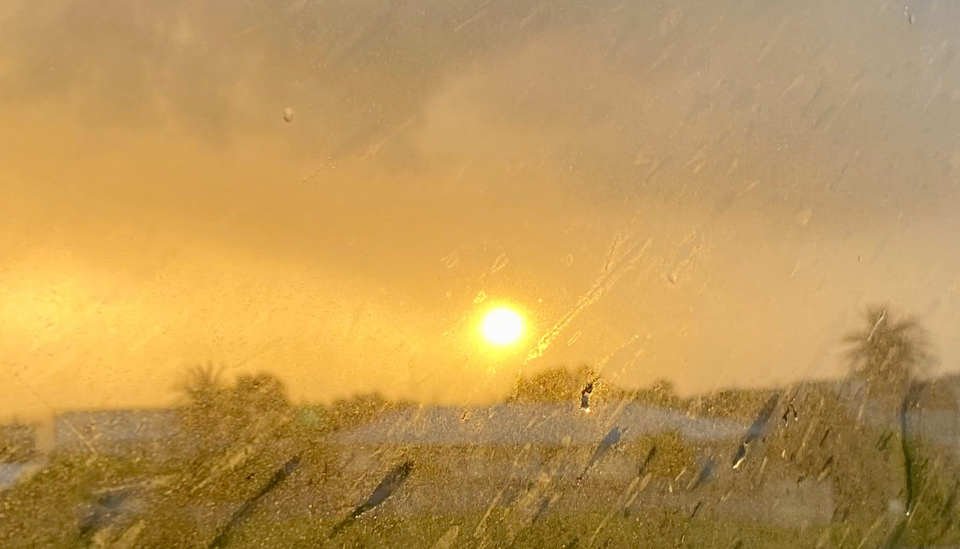Are we better than this?

This time last night, I was watching the sun descend and realised it must be after 7pm and voting had closed. I’d been oscillating between nervous as hell and earnestly hopeful for weeks but in the last few days, I’d truly believed there would be a late surge of reluctant or new voters who felt compelled to participant in the election. This response from those younger or historically disengaged would ensure that a Labour/Greens/Te Pāti Māori coalition would get in. Surely!
At 7.30pm, I checked the preliminary results for the first time and disbelieving I refreshed the app. And then again. Auē.
Throughout the night, watching the numbers that would predict our next 3 years, I theorised about how the results might still shift. I kept thinking ‘we are better than this, surely - we are better than this’. Self-soothing as I tried to make sense of how many New Zealanders either didn’t vote at all, or truly wanted a National/Act/NZ First government leading the country. This phrase felt like the 2023 version of 2019’s ‘this is not us’ that was the response of so many Tauiwi Pākehā to the March 15th Christchurch terrorist attacks.
Many with lived experiences of the xenophobia, racial profiling, stereotyping, bullying, bias and outright racism in Aotearoa are not surprised by the sheer number of voters whose values align with those of Chris Luxon, David Seymour and Winston Peters.
It’s not just about voting red or blue. Left or right. Luxon is anti-abortion and wants to scrap co-governance models, along with 20 hours of free ECE. Seymour wants a referendum to determine the role of Te Tiriti o Waitangi and to abolish the Ministry for Pacific Peoples, do away with free lunches in schools, our commitment to anything that might limit the climate crisis and reintroduce prescription fees. Act’s deputy leader, Van Valden is a gun lobbyist who began her political career fighting against the automatic weapon reforms that followed the Christchurch attacks. Peters is committed to transphobic public toilet policing and opposes the Te Aka Whai Ora / Māori Health Authority. This list goes on, policies and positions detailing exactly how much less safe and thriving our most vulnerable in Aotearoa will be under this new government.
A week or two ago, I pleaded with my fellow tāngata Tiriti via Instagram for us to vote with compassion, not thinking about how we and our families or businesses could benefit the most from this election, but how we could show up and vote for leaders who would ensure that those who don’t look like us or sound like us would be cared for. We could relinquish some of our unearned privilege. I was hopeful that our desire to not keep repeating the harm of our ancestors would prompt us to vote with our hearts.
Today, I keep thinking about my hope that ‘we are better than this’, and I cannot deny that the vast majority of us, are actually not. As Pākehā, so many of us are still deeply invested in our need to control, to hold and harness as much political and financial power as we can, to support anyone who promises us security and wealth and privilege. This is heard in the white supremacy echoing around Te Whenua Moemoeā / Australia today, too.
What do we need to understand about ourselves in the aftermath of this election? Generally, as Pākehā we value avoiding conflict, keeping up appearances, minding our own business and this worldview maintains an awkward culture of passive-aggression. We need to confront the harmful, selfish prejudice of our own people. In ourselves, our families, workplaces and neighbourhoods. Our foundation as a country is built on the white supremacist beliefs that as Europeans, we had the right to colonise and ‘civilise’ Aotearoa and iwi Māori here, no matter what. That entitlement has never truly changed. Until we shake off our denial and exceptionalism, stop muttering ‘this is not us, we are better than this’, we repeat the mistakes that our ancestors did, we maintain our colonial inheritance of oppression of anyone who is ‘other’, and we cannot heal.